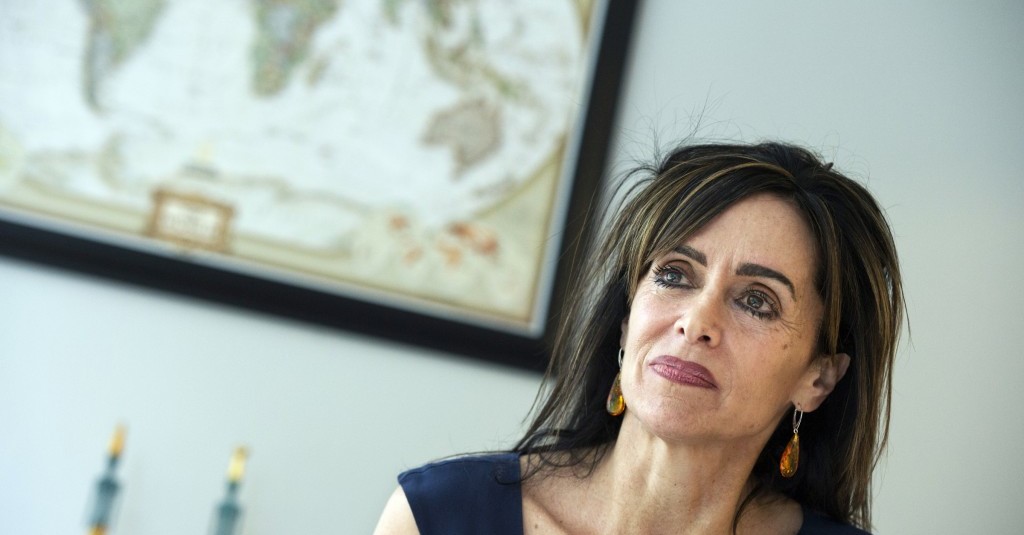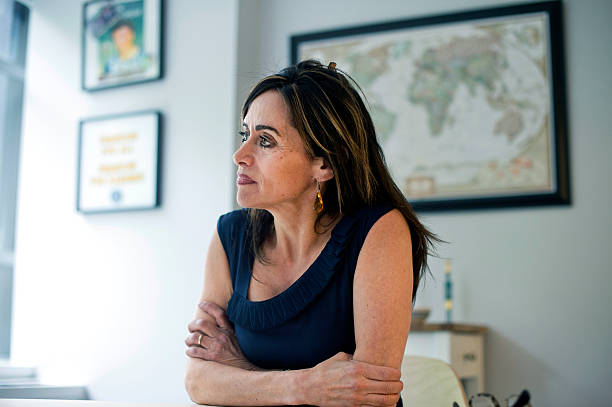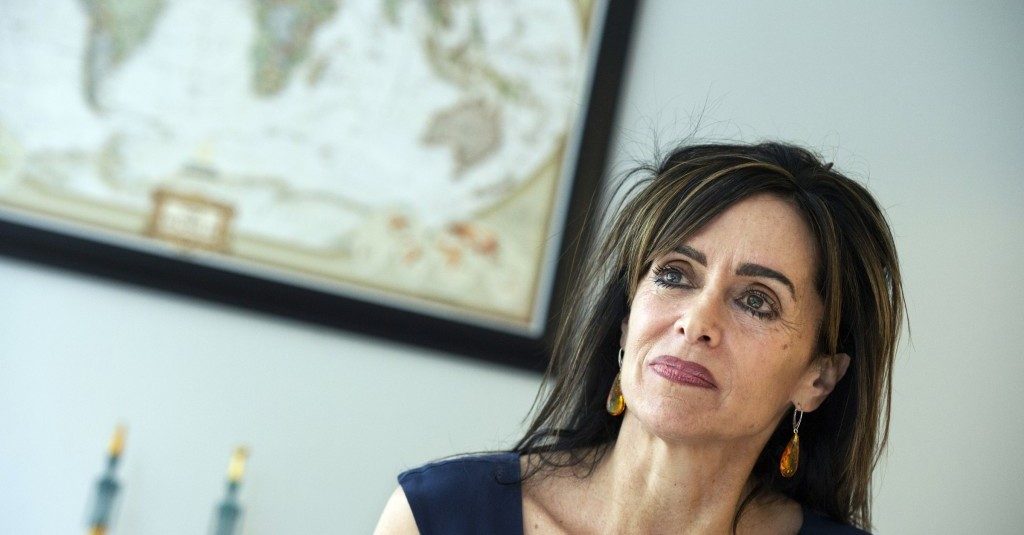It’s a great privilege to be here today, my thanks to the International SHEROES Forum, the SHEROES Foundation, the sponsors, and to Maxine and Flossy Menson.
My name is Riva Levinson. I am President and CEO of KRL International LLC, a Washington, D.C.-based consultancy that operates in the world’s emerging markets promoting democracy, development, and the integration of business, markets and people. It is a women-owned, small business.
I have spent most of my professional career working in Africa and have witnessed many of the continent’s historic inflection points, and I did so in the trenches.

I was in Somalia, in 1989, a country bouncing back and forth between the U.S. and the Soviet Union during the Cold War, enabling dictators and chaos to rule.
I observed Angola’s first multi-party elections, which turned out to be a failed attempt to reconcile 17 years of conflict and I watched the country return to civil war.
I was a UN observer in 1994, for the first all-race election in South Africa following the fall of apartheid and the election of Nelson Mandela.
In the late 1990s, I became involved in Liberia and the West Africa sub-region, supporting Ellen Johnson Sirleaf in her efforts to stop the civil and regional war, rid the country of warlords, embrace democracy, and hold free and fair elections. And I have worked with Ellen Johnson Sirleaf since that time.
As you know, she would go on to become the first women democratically elected to lead an African nation, a Nobel Laureate for Peace, and after serving two terms in office, she would oversee the first peaceful transfer of presidential power in Liberia in 75 years.
It’s all recounted in my memoir, Choosing the Hero: My improbable journey and the rise of Africa’s first woman president. Which on Wednesday received its third U.S. national book award!
But that’s not why I am here, nor, what got me the invitation to address the prestigious group.
I stand before you on this Friday, 18 May, because of the intercession of Dr. Joyce Banda, the former president of Malawi, and the first woman elected Vice President of an African nation.
I was introduced to Joyce Banda several years ago when she was forced to flee Malawi, under political attack and in fear of her personal safety.
It was at one of the most challenging moments in her life, having lost her presidential bid through a flawed election, and then forced to defend her reputation against lies and unproven allegations of corruption.
She said to me at the time, “I think that one of the greatest mistakes of my life is that I failed to understand that I needed to fight back and defend my name and character. I thought it was enough just to do the right thing.”
I was able to help secure for her a platform for her work in Washington, D.C. at the Wilson Center and the Center for Global Development, where she freely traveled the world for two years, speaking on behalf of the rights of women and girls in rural Africa.
My firm also advocated for her at the UN, with the U.S. Government, and with the international media, defending her innocence and her right to return home and be given due process of law.
And I am pleased to say that Joyce Banda returned to Malawi on 29 April, 2018, to a heroes’ welcome, or a “Sheroes welcome,” and appears to have emerged as a powerful political force.
And through my efforts, I learned that there was another group, which had been fighting for her all along, the SHEROES Foundation, Maxine and Flossy.
With that as background, I would like to talk about what binds Ellen Johnson Sirleaf, to Joyce Banda, to me, and to all of you.
And I am going to do that by telling a story.
Two weeks ago, I was in Washington, D.C. at the George Washington University, Elliot School of International Affairs, to moderate a panel with who we in D.C. call the “movers and shakers.”
The subject was “how women diplomats, and other woman professionals, navigate the world during the times of the Trump presidency.”
How do you combat the patriarchy? The misogyny? A promise of criticism of the U.S. president always draws a crowd!
I arrive with the other panelists ten minutes before the opening at 6 PM sharp, 150 people had RSVPed.
Those with me include Arikana Chihombori-Quao, AU Ambassador to the U.S., Janelle Johnson, Government leader, and a preacher, minister, Abigail Bokoyeibo, youth fellow, World Vision USA, Liberata Mulamula, former Ambassador to Tanzania, Thelma Phillip-Browne, Ambassador to St. Kitts-Nevis, and our host, CeCe Cole, CEO of the professional women’s magazine, Silke Endress.

At 6:30 PM, the room remains empty, just my panelists and the organizers. We wonder if there is a road closure, the building is locked, what happened to our audience?
By 6:45, two people trickle in, CeCe is apologetic, “We had so many RSVPs.” You can tell she is feeling badly, that she has wasted our time, fearing we are all second-guessing the value of continuing with the program.
But no one second-guesses CeCe.
Sitting in front of a near empty room, as with all due rights of a moderator, I elect to change-up the program, and forget about Donald Trump.
I turn to my fellow panelist and ask each of them, “What was the greatest challenge of your life, and how did you get through it, and how did it shape who you are?
Five students quietly enter the room as I open.
Abigail, the youngest of the panel from World Vision, folds up her prepared remarks, and explains to the group, that she grew up on the border of Nigeria and Cameroon, where quality schooling was not available. She talks about her struggle to educate herself, saving money from drying wet rice, and resisting the temptation of easy money, as a young, attractive woman.
She speaks passionately. We all journey back to her village with her in rural border of Southern Nigeria and Cameroon.
She stops in mid-silence. Applause breaks out. I look up, and 10 new guests have entered the room. Even some men!
I then give the floor to Thelma, the Ambassador from the Caribbean, and say, please, what is your story? She looks uncomfortable at first, being put on the spot, but then relents and tells us about her greatest challenge.
Like Abigail, it was during her childhood.
She recalls that as a young girl, she spent the afternoons doing chores at her godmother’s home, whose daughter was mixed race, a Mulatto. She explains how she was treated by her lighter skinned peer, having to clear her water from the tub. Clean up after her.
Later, Thelma went to live with the same family, to help care for an elderly relative. She was not permitted to use the indoor toilet, or eat at the dining table.
She grew up feeling discriminated against.
When Thelma was done with her story, I notice the room is beginning to fill-up. Who arrives to a panel more than an hour late, I wonder?
I then turn to Arikana, the AU Ambassador to the United States, the most senior in title, and age on the panel.
She clarifies that she is also a medical doctor and tells us that she did her residency in New York, where she was one of just 5 woman of 93 residents, the only person of color, and the only foreigner.
One day, her supervisor pulls her aside and says, “you are talented and capable, but this a cut-throat environment. You are swimming with the sharks, you will be walked all over, stabbed in the back, unless you behave like they do.
The Ambassador conveys to us that she thought long and hard about taking the “low road,” but said “that was not her,” and she adopted other survival skills.
My last panelist is the Rev Janelle.
Janelle discloses that a decade ago, while pregnant with her first child, she was physically and emotionally abused, and as a result, miscarried.
Janelle articulates the overwhelming sadness, and her fall into depression. Eventually, she voices, how she looked within herself and to God for strength and lifted herself up. She would not let the abuse define her life. She would not be a victim.
After Janelle finishes, we are running well over the 8 PM close, and no one wants to leave.
Then I tell my story – the story of Choosing the Hero.
The gift of storytelling, is that nobody tells you what to think, that is entirely up to you.
So what do I take away from 20 years working with Ellen Johnson Sirleaf, from the crisis intervention with Joyce Banda, from Liberata, Janelle, Thelma, CeCe Abigail and Arikana?
That it is not our successes, which define us, not where we went to school, our impressive job titles, what we have written, or what others have written about us. We are who we are largely because of our failures, how we overcome them, and what lessons we take away.
As former president Sirleaf says, “our successes are only our failures turned upside down.”
In closing, share with you the last paragraph on the last page of Choosing the Hero.
Working with Ellen has taught me to follow my heart and not to fear being misunderstood. I have come to see that certainty is a luxury and destiny a journey that reveals itself with time. It is easy to stray off course, to doubt and lose faith, to see compromise as surrender, to feel judged, isolated and even abandoned. But there is always something to hold on to, the belief that things will get better. I have come to appreciate that we need people to guide us, those we admire and those we believe in—the heroes that we choose.
Thank you!
TED TALK – delivered at the International SHEROES Forum, Labadi Beach Hotel, May 18, 2018

